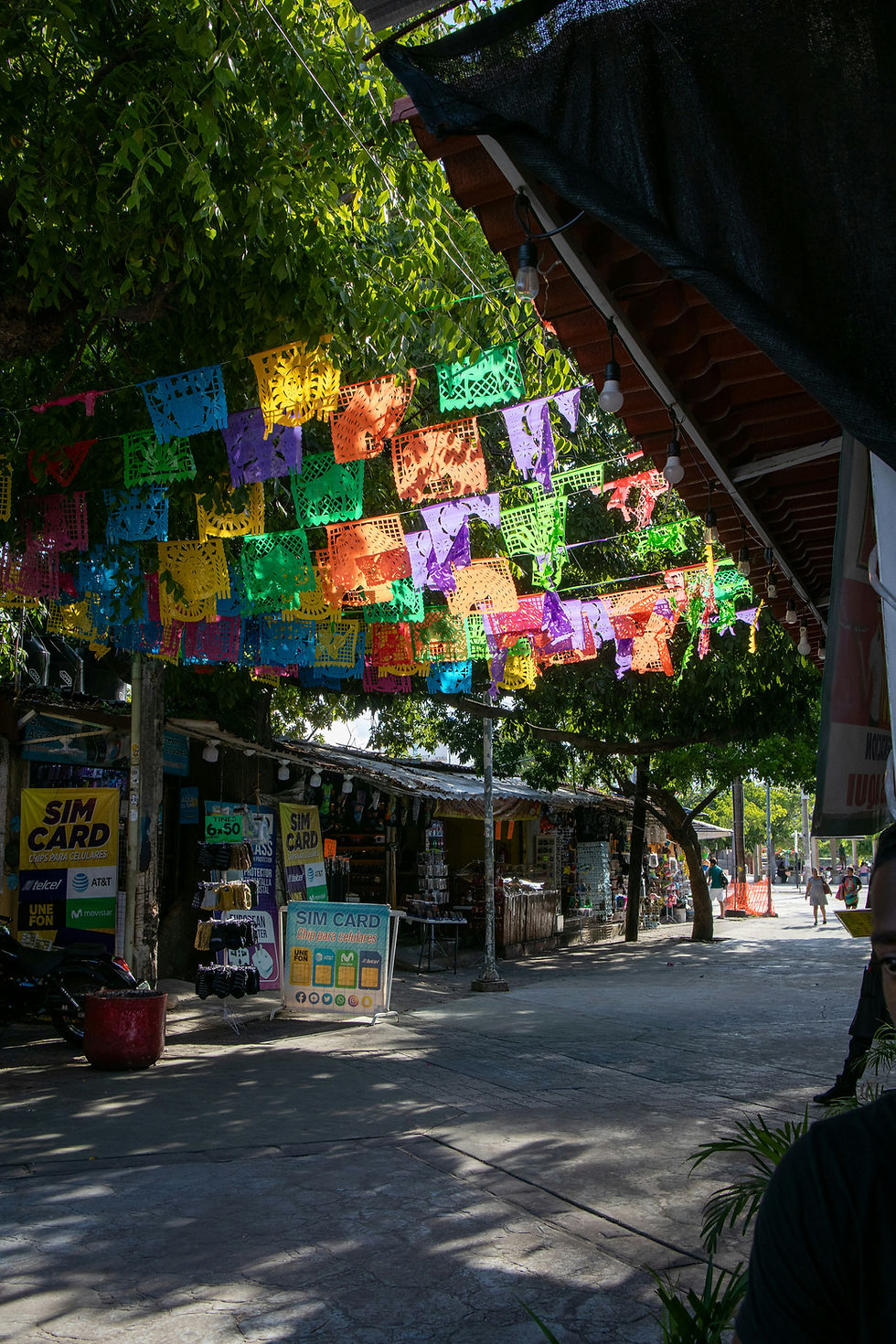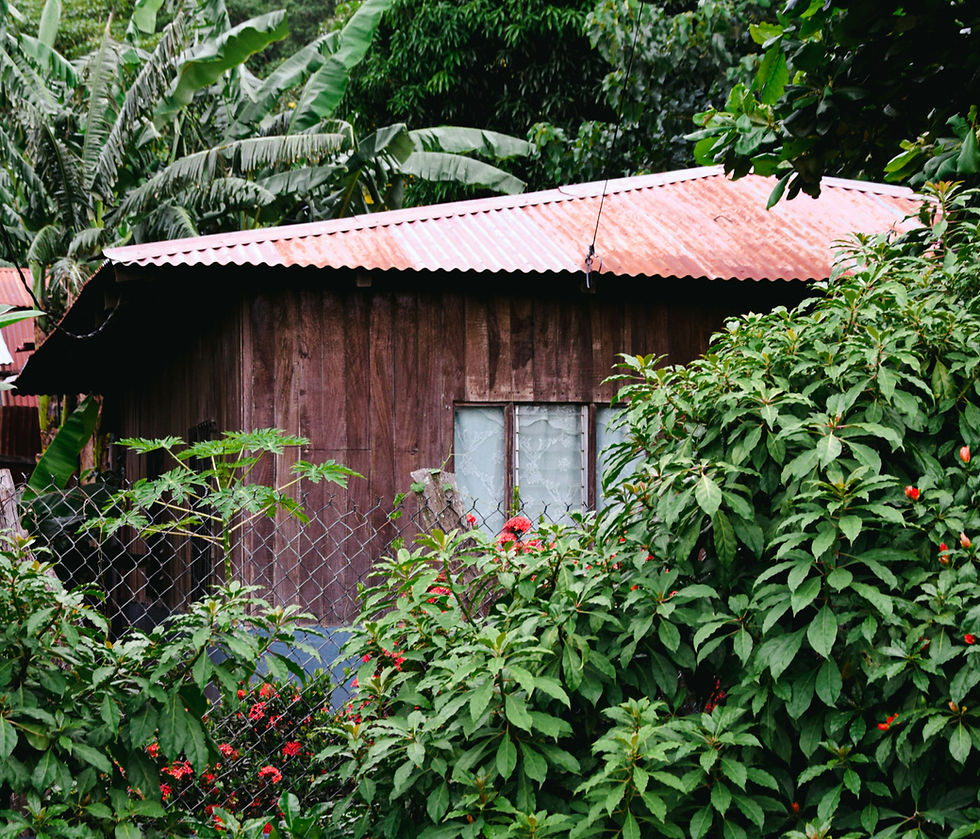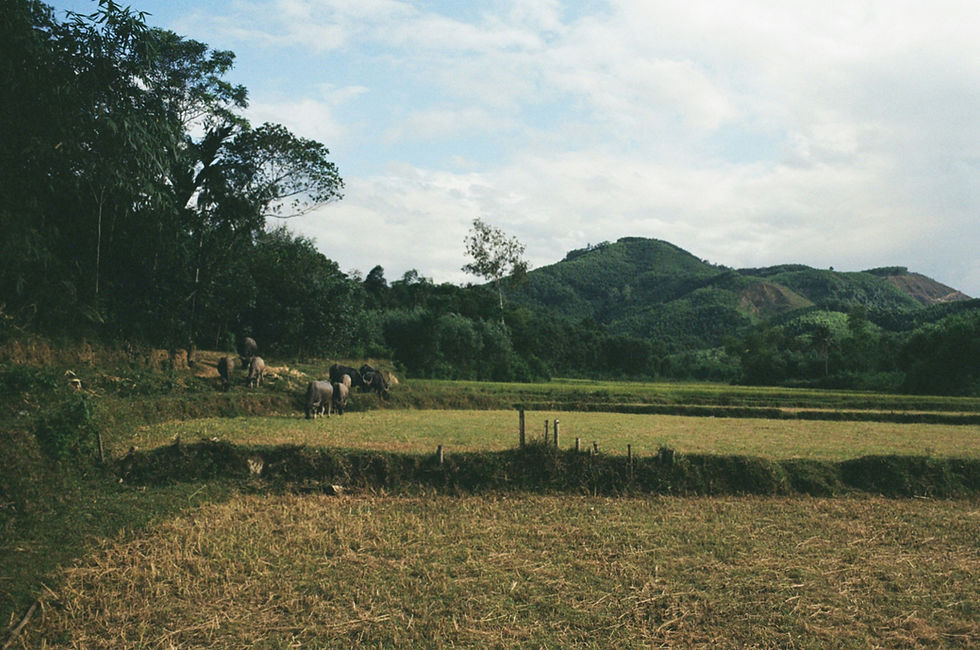Living in Costa Rica: The Good, The Bad, and The Beautiful
- Dani G
- May 7, 2025
- 4 min read
Updated: May 19, 2025
Moving away from your home country will always be a difficult endeavor. Over the years, you become accustomed to a particular way of life. Even if there are things that you don't enjoy about that life, it becomes your normal. So, no matter how excited you are about LGBTQ immigration, you will have a few adjustments to make once you're here. Learn more about what to expect from your move.
The Positive Changes You Can Expect in Costa Rica
When I first arrived in Costa Rica, I felt at home. Many things that I craved back home were present here. For one, there was such a strong sense of community. Both small and large towns have downtown areas, schools, and pulperias (convenience shops). In most places, you can get to know your neighbors at weekly markets and community events.

This sense of community means that you're never truly alone. If a Tico sees an American stuck on the side of the road, they'll stop to help. I've witnessed that myself several times. They take on life together here, and Rainbow Refuge expands that sentiment. When I first stayed at the hotel, I was amazed at how everyone jumped in to help each other out. From sharing cars to making meals to helping move furniture, the people here just want to collaborate. It's a beautiful thing.
Healthier Lifestyle
Ticos look surprisingly young for their age. And there may be a good reason for that. Here, the food is healthier and has fewer additives. If you do most of your shopping at the local feria, you can have a steady diet of homegrown fruits, vegetables, and more.
While there is fast food available here, it's not nearly as common as it is in the US. Overall, people eat better here.
More Respect for Nature
One of the beautiful things about Costa Rica is the deep respect that the locals have for nature. And when you visit, that respect becomes contagious. There are many laws that protect certain land from development, and there's a large focus on recycling and respecting natural resources. While there's still waste and development, there's much more reverence for the world around us.
The Simple Things
Here in Costa Rica, life is about enjoying the simpler things. Most people don't have nice cars or fancy houses, but they take pride in what little they have and spend their days caring for their possessions. Often, I'll walk by a neighborhood and pass several people landscaping their tiny yards, sweeping their patios, and washing their cars.

They also focus more on life experiences than ownership. While most Americans work to buy more things, Ticos have a better work-life balance. They make time for their families or for trips to la playa. They truly enjoy life, and that's contagious.
The Views
No matter where you go in Costa Rica, you can expect a stunning view. On the coastline, you can look out over the ocean at rocky outcrops and stunning water. In the mountains, you can look out for miles and miles, scanning the rolling hills for monkeys and birds. The rainforest has its own scenery, with macaws gliding through the air and trees that seem older than the planet itself.
If you're having a bad day, just take in a view. You can easily find affordable housing with a million dollar view, or you can take a five minute car ride to a lookout. Even after years of living here, you won't take those views for granted.
The Negatives of LGBTQ Immigration to Costa Rica
Not everything is sunshine and roses. As much as I love Costa Rica, there are a few challenges that come from living here. Here are a few downsides you can expect:
Lack of English
Personally, I don't mind the lack of English here. But, if you don't speak any Spanish, this could both surprise and frustrate you. If you want to thrive in Costa Rica, learn the language. Even a few words will go a long way!
Ticos are incredibly friendly and happy to see you just trying to speak their language. Because of this, it's very easy to practice your Spanish and communicate with locals. Just saying "Pura Vida" will make all the difference.
DRIVING

Perhaps my biggest pet peeve about living in Costa Rica is the driving. But after a few months, I'm starting to enjoy the fun that comes from speeding in front of sugar cane trucks before big hills and navigating unpaved areas and potholes on national roads.
It could take an hour to go 10 miles in Costa Rica. Sometimes, construction, trucks, or accidents block roads with no end in sight. You might be five minutes from home and get stuck behind an overloaded truck going five mph (and that's when it's not going uphill). If you're like me and lack patience behind the wheel, driving here will take some adjustment.
Nevertheless, every trip is an adventure, and you can enjoy the beautiful views while you crawl up a hill behind a truck or wait behind a car stopped in the middle of the road so the driver can chat with someone.
Tico Time
If you've been to the Caribbean, you're probably aware of "Island Time." Here in Costa Rica, there's "Tico Time." If you go to a restaurant, don't expect anyone to rush to take your order. Someone tells you they'll show up at 9 am? Be ready for them to get there after 9:30.
While this behavior drives me up the wall in the US, it's a different world here. There is no rat race - no rushing to get to work or cross ten things off your to-do list. Once you're here, you can slow down and stop worrying about the clock.
Is LGBTQ Immigration for You?
To find out if Costa Rica is right for you, come down for a visit. Spend time chatting with Laurie and Melaney, and learn why they love this country. If you have any questions, feel free to reach out to us and ask us more about LGBTQ immigration. We're here to help!


Comments